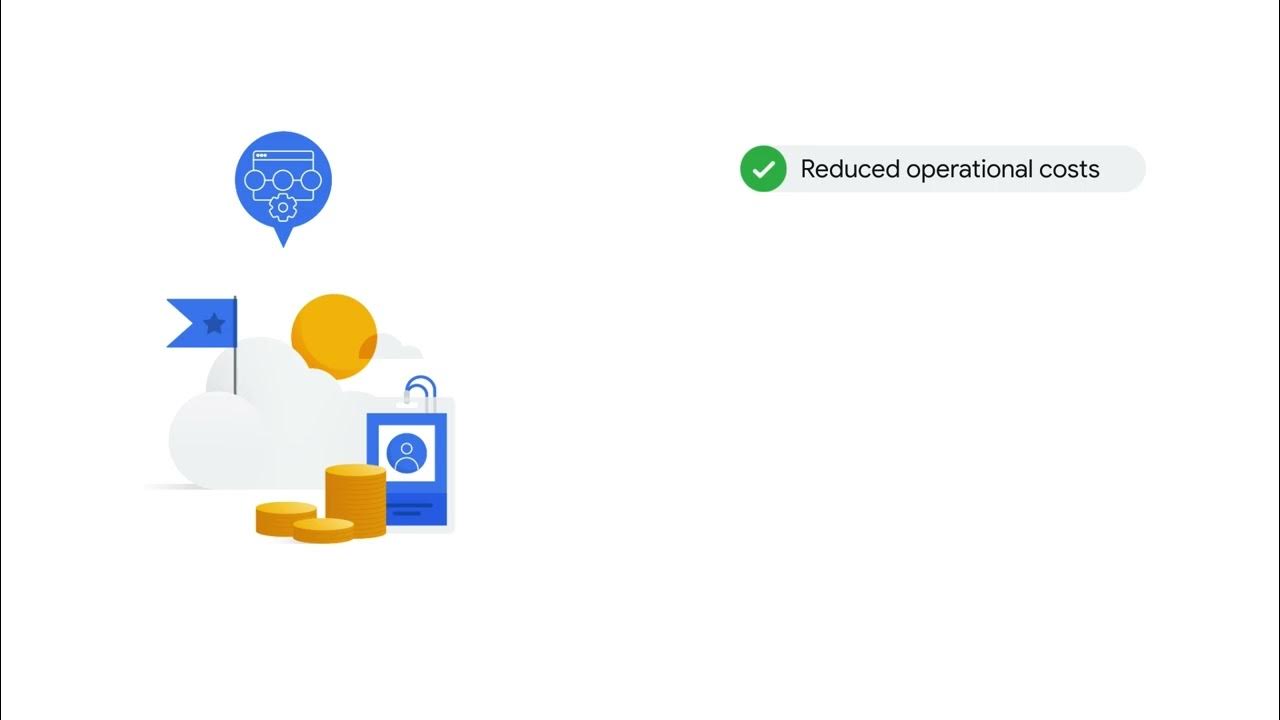Day 1/100 || What is cloud computing ? || 100 Days Cloud Challenge || AWS in hindi||
Summary
TLDRThis video introduces cloud computing, explaining how businesses today rely on cloud infrastructure to run their applications. Through examples like Zomato, Ola, and Amazon, it highlights the shift from traditional physical infrastructure to cloud services. Cloud providers such as AWS, Microsoft Azure, and Google Cloud enable businesses to host applications without the need to build their own data centers. The concept of on-demand IT resources is emphasized, offering businesses scalability and cost efficiency by paying only for the resources they use. The video explores how cloud computing is revolutionizing modern business operations.
Takeaways
- 😀 Cloud computing powers modern businesses, from food delivery to e-commerce.
- 😀 Apps like Zomato and Amazon rely on digital infrastructure to function smoothly.
- 😀 The key to running any app is having reliable IT infrastructure like servers and networking.
- 😀 Centralized data centers are essential to host and run applications efficiently.
- 😀 Hosting apps on physical servers requires significant resources, including electricity and a controlled environment.
- 😀 Data centers provide a scalable solution to store and run apps without building an expensive setup from scratch.
- 😀 Cloud computing eliminates the need to build your own data center by offering hosted services from providers like AWS, Azure, and Google Cloud.
- 😀 Cloud services are flexible: you can access resources on-demand and pay only for what you use.
- 😀 Cloud providers like Amazon, Microsoft, and Google provide a reliable infrastructure that supports millions of users across various apps.
- 😀 Cloud computing enables businesses to scale easily without worrying about managing physical servers or resources.
- 😀 On-demand delivery of IT resources through cloud computing simplifies application deployment and access on multiple devices and locations.
Q & A
What is the main focus of this video?
-The video focuses on explaining cloud computing, its importance in business operations, and how cloud services enable businesses to run applications efficiently without the need for physical infrastructure.
How has cloud computing transformed traditional businesses like Zomato and Ola?
-Cloud computing has enabled businesses like Zomato and Ola to digitalize their operations through mobile applications, allowing customers to place orders or book rides seamlessly. These businesses rely on cloud infrastructure to handle large user bases and scale efficiently.
Why is infrastructure capacity crucial for businesses running applications like Zomato or Amazon?
-For businesses like Zomato or Amazon, the infrastructure needs to handle millions of users and requests simultaneously. The application requires significant resources (computing power, storage, and network bandwidth), which must be scalable to meet demand, particularly during peak usage times.
What role do data centers play in cloud computing?
-Data centers house the physical servers and infrastructure that cloud service providers use to deliver services to customers. They ensure the availability, reliability, and scalability of applications hosted in the cloud.
What are the main advantages of using cloud computing for running applications?
-The main advantages of cloud computing include cost efficiency (pay only for what is used), scalability (expand or reduce resources as needed), and flexibility (access applications from anywhere at any time).
How do cloud service providers like AWS, Microsoft Azure, and Google Cloud help businesses?
-These cloud service providers offer scalable IT resources, including computing power, storage, and networking. They manage the infrastructure, so businesses can focus on their core operations without needing to worry about setting up or maintaining physical data centers.
What is on-demand resource delivery in cloud computing?
-On-demand resource delivery means that businesses can access IT resources as needed, anytime and anywhere, and only pay for the resources they use. This flexibility ensures efficient cost management and scalability.
What would a startup need to do to host its application without a physical data center?
-A startup can host its application in the cloud, using services from cloud providers like AWS, Microsoft Azure, or Google Cloud. The startup would not need to invest in physical infrastructure but would instead pay for the cloud resources required to run the application.
How does cloud computing address the challenge of large user bases for applications?
-Cloud computing provides scalable infrastructure, allowing businesses to quickly scale up or down based on user demand. This ensures that applications can handle large numbers of users without performance issues, especially during peak times.
What is the significance of using cloud computing for businesses with limited resources?
-Cloud computing allows businesses with limited resources to run their applications efficiently without investing in costly physical infrastructure. This enables startups and small businesses to compete with larger companies by providing them with access to high-end IT resources on demand.
Outlines

This section is available to paid users only. Please upgrade to access this part.
Upgrade NowMindmap

This section is available to paid users only. Please upgrade to access this part.
Upgrade NowKeywords

This section is available to paid users only. Please upgrade to access this part.
Upgrade NowHighlights

This section is available to paid users only. Please upgrade to access this part.
Upgrade NowTranscripts

This section is available to paid users only. Please upgrade to access this part.
Upgrade Now5.0 / 5 (0 votes)





